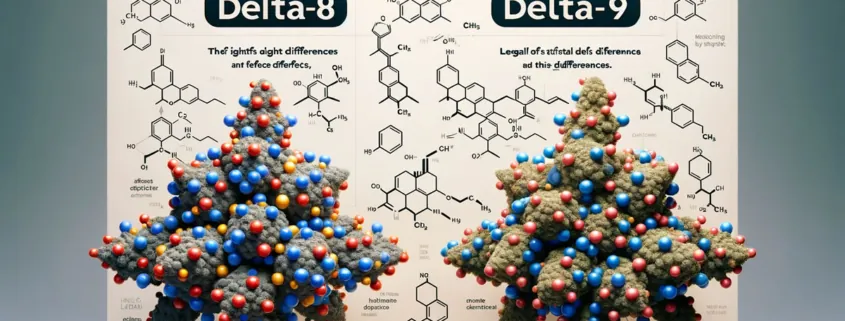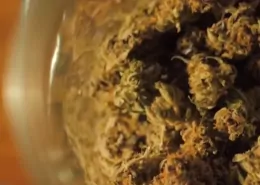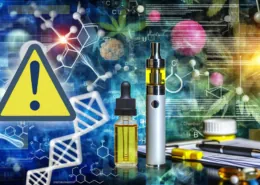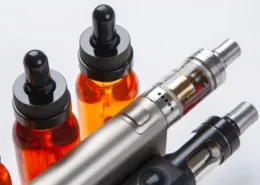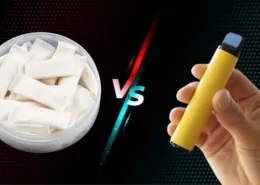Delta-8 vs Delta-9 THC: The Differences and Similarities
As the cannabis industry continues to evolve and expand, consumers are faced with an ever-growing array of products and compounds to explore. Two cannabinoids that have captured the attention of many are Delta-8 THC and Delta-9 THC. While these compounds share some similarities, they also possess distinct differences that can greatly impact your cannabis experience. In this in-depth guide, we’ll dive into the fascinating world of Delta-8 and Delta-9 THC, helping you navigate their unique properties, potential benefits, and the importance of making informed decisions when exploring these cannabinoids.
Understanding Delta-8 and Delta-9 THC
Before we delve into the intricacies of Delta-8 and Delta-9 THC, let’s establish a solid foundation by examining their basic characteristics and how they fit into the broader landscape of cannabis compounds.
Delta-8 THC: The Emerging Cannabinoid
Delta-8 THC, a minor cannabinoid, has recently stepped into the spotlight, captivating the interest of both consumers and researchers. This compound is an isomer of Delta-9 THC, meaning it shares the same molecular formula but with a slightly different arrangement of atoms (1). This subtle structural distinction gives Delta-8 THC unique properties and effects that set it apart from its more well-known counterpart.
The Chemical Structure and Derivation of Delta-8 THC
Delta-8 THC is characterized by a double bond on the 8th carbon chain of its chemical structure, whereas Delta-9 THC has a double bond on the 9th carbon chain. While Delta-8 THC can be derived from hemp or cannabis plants, its natural occurrence is relatively low. As a result, it is often synthesized from CBD in a laboratory setting, a process that has raised concerns about product quality and safety (2).
The Legal Landscape of Delta-8 THC
The legal status of Delta-8 THC is a complex and evolving issue, with regulations varying significantly across different jurisdictions. In some states, Delta-8 THC is allowed under the provisions of the 2018 Farm Bill, which legalized hemp-derived products with less than 0.3% Delta-9 THC. However, other states have imposed restrictions or outright bans on Delta-8 THC, citing a lack of research and potential health risks (3). It’s crucial for consumers to stay informed about the specific laws and regulations in their area.
Delta-9 THC: The Classic Cannabinoid
Delta-9 THC, the most widely recognized and extensively studied cannabinoid in cannabis, is renowned for its potent psychoactive effects and potential therapeutic benefits. This compound has been at the forefront of medical research and legal debates surrounding cannabis for decades.
The Chemical Structure and Natural Occurrence of Delta-9 THC
Delta-9 THC boasts a double bond on the 9th carbon chain of its chemical structure, contributing to its notable psychoactive properties. Unlike Delta-8 THC, Delta-9 THC is naturally present in significant quantities in cannabis plants, with concentrations typically ranging from 0.3% to 4% (4). Some specially cultivated strains can even contain up to 25% THC, showcasing the cannabinoid’s prominence in the plant.
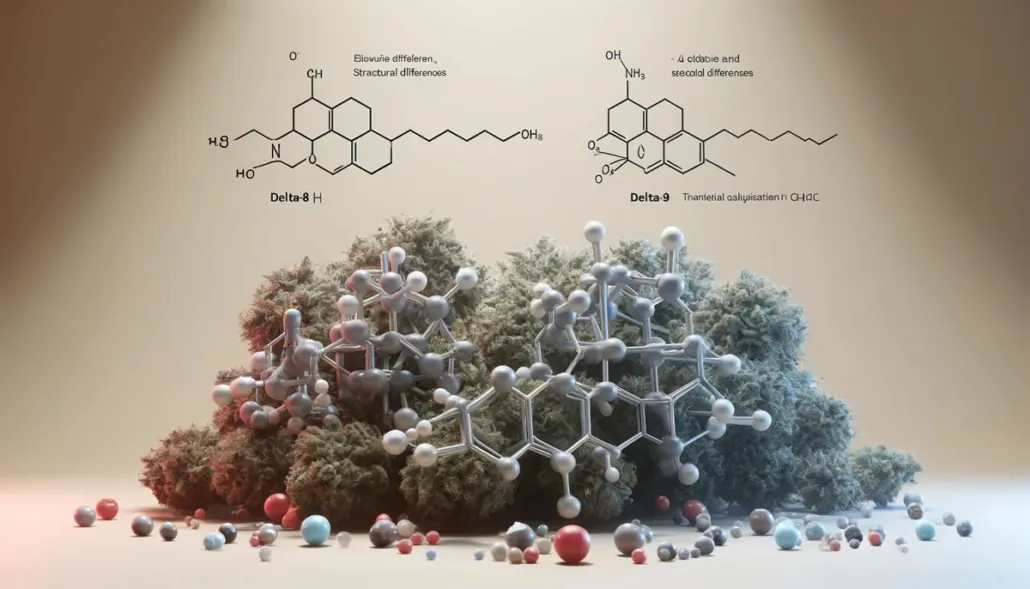
The Differences Between Delta-8 and Delta-9 THC
While Delta-8 and Delta-9 THC share some common ground, their differences are what truly set them apart and make them unique players in the world of cannabis. Let’s explore these distinctions in more detail.
Psychoactive Properties and Potency
One of the most notable differences between Delta-8 and Delta-9 THC lies in their psychoactive properties and potency. Delta-9 THC is known for its strong psychoactive effects, often associated with the iconic “high” experienced by cannabis users. In contrast, Delta-8 THC is reported to have milder and less intoxicating effects, with users describing a more clear-headed and focused experience (5). This difference in potency can be attributed to the slight variation in their chemical structures, which affects how they interact with the body’s endocannabinoid system.
Medical Applications and Therapeutic Potential
Both Delta-8 and Delta-9 THC have been explored for their potential medical and therapeutic benefits. Cannabis has a rich history of being used to address various health conditions, including inflammation, seizure disorders, pain relief, sleep improvement, appetite stimulation, and the reduction of nausea and vomiting (6). While Delta-9 THC has been the primary focus of medical research, Delta-8 THC has shown promise in similar applications, albeit with limited studies to date.
Side Effects and Safety Considerations
As with any substance, both Delta-8 and Delta-9 THC can cause adverse effects, which may vary depending on factors such as dosage, individual physiology, and product quality. Common side effects associated with THC include dry mouth, increased heart rate, anxiety, and impaired coordination (7). It’s essential for consumers to exercise caution and consult with a healthcare professional before using any cannabis products, especially if they have pre-existing medical conditions or are taking medications that may interact with cannabinoids.
The Potential and Pitfalls of Delta-8 THC
Delta-8 THC has emerged as an intriguing alternative to Delta-9 THC, offering a unique set of potential benefits and challenges.
Potential Benefits and Uses
Preliminary research and anecdotal evidence suggest that Delta-8 THC may offer various potential benefits, including improved sleep, pain relief, reduced inflammation, anxiety and stress relief, increased appetite, and the prevention of sensory overload (8). However, it’s important to note that more research is needed to fully understand the extent and mechanisms of these effects, as well as to establish safe and effective dosing guidelines.
Risks and Concerns
The rapid rise of Delta-8 THC in the cannabis market has also raised concerns about product quality, safety, and the potential for abuse. The lack of long-term studies and the unregulated nature of the Delta-8 market have led to questions about the purity and consistency of products, as well as the presence of potentially harmful byproducts from the synthesis process (9). Consumers should exercise caution and only purchase Delta-8 THC products from reputable sources that provide third-party lab testing results and adhere to strict quality control standards.
Legal Complexities and Drug Testing
The legal landscape surrounding Delta-8 THC is complex and ever-evolving, with regulations varying widely across states and jurisdictions. Consumers must stay informed about the specific laws in their area and be aware that even hemp-derived Delta-8 THC products can trigger positive drug test results. Delta-8 THC can convert to Delta-9 THC in the body, leading to unexpected consequences for those subject to drug testing for employment or other purposes (10).
Navigating the World of Delta-8 and Delta-9 THC
As the cannabis industry continues to evolve and introduce new products and compounds, it’s essential for consumers to approach Delta-8 and Delta-9 THC with a well-informed and cautious mindset. By understanding the unique properties, potential benefits, and associated risks of these cannabinoids, individuals can make responsible decisions that prioritize their health and well-being.
When exploring Delta-8 or Delta-9 THC products, it’s crucial to choose reputable sources that prioritize transparency, quality control, and customer safety. Look for companies that provide third-party lab testing results, use high-quality ingredients, and adhere to strict manufacturing standards. Don’t hesitate to ask questions, seek advice from knowledgeable professionals, and listen to your body as you navigate this fascinating world of cannabinoids.
As research into Delta-8 and Delta-9 THC continues to expand, we can expect a clearer picture of their therapeutic potential, long-term effects, and best practices for safe and effective use to emerge. By staying informed, open-minded, and prioritizing your well-being, you can harness the potential benefits of these compounds while minimizing the risks.
So, whether you’re a seasoned cannabis enthusiast or a curious newcomer, remember that knowledge is power when it comes to Delta-8 and Delta-9 THC. Embrace the journey of discovery, but always do so with caution, respect, and a commitment to making informed decisions that support your unique needs and goals.
References
1. Kruger, J. S., & Kruger, D. J. (2022). Delta-8-THC: Delta-9-THC’s nicer younger sibling?. Journal of Cannabis Research, 4(1), 1-8. https://doi.org/10.1186/s42238-021-00115-8
2. Erickson, B. E. (2021). Delta-8-THC craze concerns chemists. Chemical & Engineering News, 99(31). https://cen.acs.org/biological-chemistry/natural-products/Delta-8-THC-craze-concerns-chemists/99/i31
3. Mascal, M., Hafezi, N., Wang, D., Hu, Y., Serra, G., Dallas, M. L., & Spencer, J. P. (2019). Synthetic, non-intoxicating 8,9-dihydrocannabidiol for the mitigation of seizures. Scientific Reports, 9(1), 1-6. https://doi.org/10.1038/s41598-019-56785-1
4. Chandra, S., Radwan, M. M., Majumdar, C. G., Church, J. C., Freeman, T. P., & ElSohly, M. A. (2019). New trends in cannabis potency in USA and Europe during the last decade (2008–2017). European Archives of Psychiatry and Clinical Neuroscience, 269(1), 5-15. https://doi.org/10.1007/s00406-019-00983-5
5. Hollister, L. E., & Gillespie, H. K. (1973). Delta‐8‐and delta‐9‐tetrahydrocannabinol; Comparison in man by oral and intravenous administration. Clinical Pharmacology & Therapeutics, 14(3), 353-357. https://doi.org/10.1002/cpt1973143353
6. Whiting, P. F., Wolff, R. F., Deshpande, S., Di Nisio, M., Duffy, S., Hernandez, A. V., … & Kleijnen, J. (2015). Cannabinoids for medical use: a systematic review and meta-analysis. JAMA, 313(24), 2456-2473. https://doi.org/10.1001/jama.2015.6358
7. Crippa, J. A., Zuardi, A. W., Martín‐Santos, R., Bhattacharyya, S., Atakan, Z., McGuire, P., & Fusar‐Poli, P. (2009). Cannabis and anxiety: a critical review of the evidence. Human Psychopharmacology: Clinical and Experimental, 24(7), 515-523. https://doi.org/10.1002/hup.1048
8. Abrahamov, A., Abrahamov, A., & Mechoulam, R. (1995). An efficient new cannabinoid antiemetic in pediatric oncology. Life Sciences, 56(23-24), 2097-2102. https://doi.org/10.1016/0024-3205(95)00194-B
9. Meehan-Atrash, J., & Strongin, R. M. (2021). Pine rosin identified as a toxic cannabis extract adulterant. Forensic Science International: Synergy, 3, 100166. https://doi.org/10.1016/j.fsisyn.2021.100166
10. Schlienz, N. J., Lee, D. C., Stitzer, M. L., & Vandrey, R. (2018). The effect of high-dose dronabinol (oral THC) maintenance on cannabis self-administration. Drug and Alcohol Dependence, 187, 254-260. https://doi.org/10.1016/j.drugalcdep.2018.02.022
- Best Delta-8 THC Carts of 2025: Top 5 Vapes Reviewed - July 16, 2025
- UK Vape Ban: Your Guide to Legal Alternatives in 2025 - July 4, 2025
- The Global and U.S. Vaping Industry in 2025: Growth, Challenges, and Opportunities - May 27, 2025

